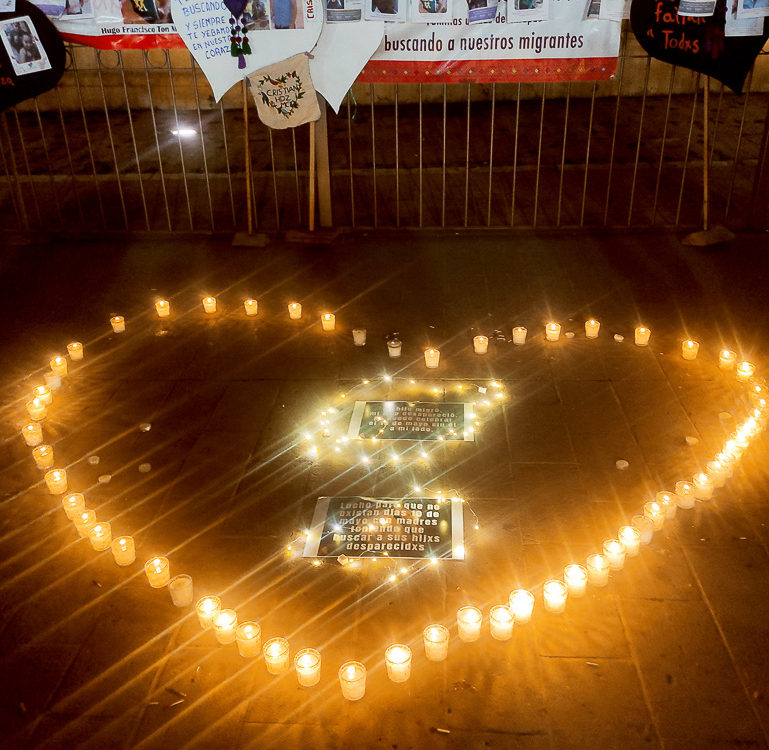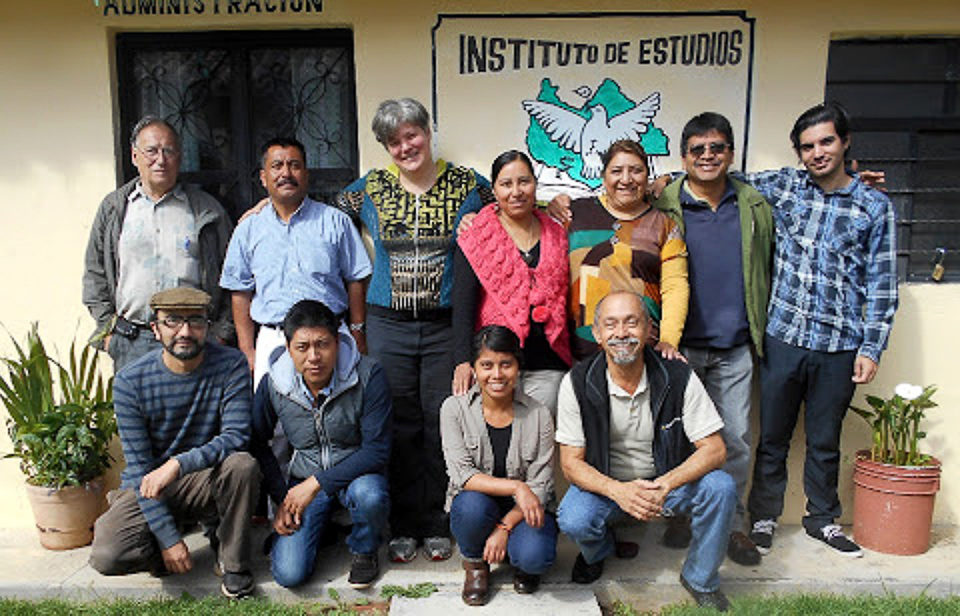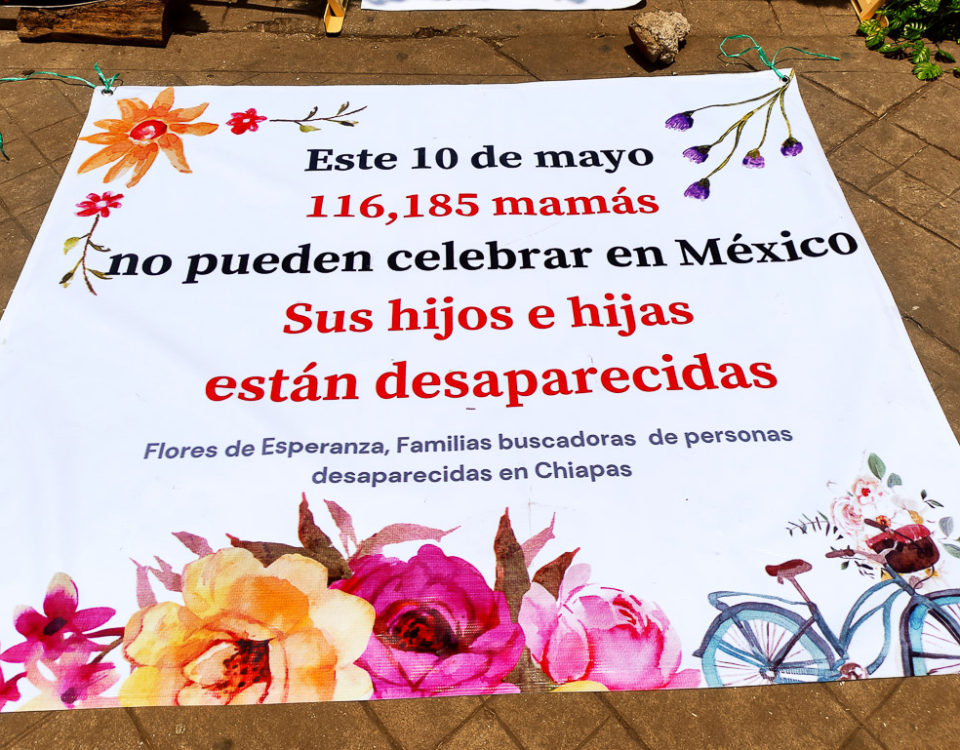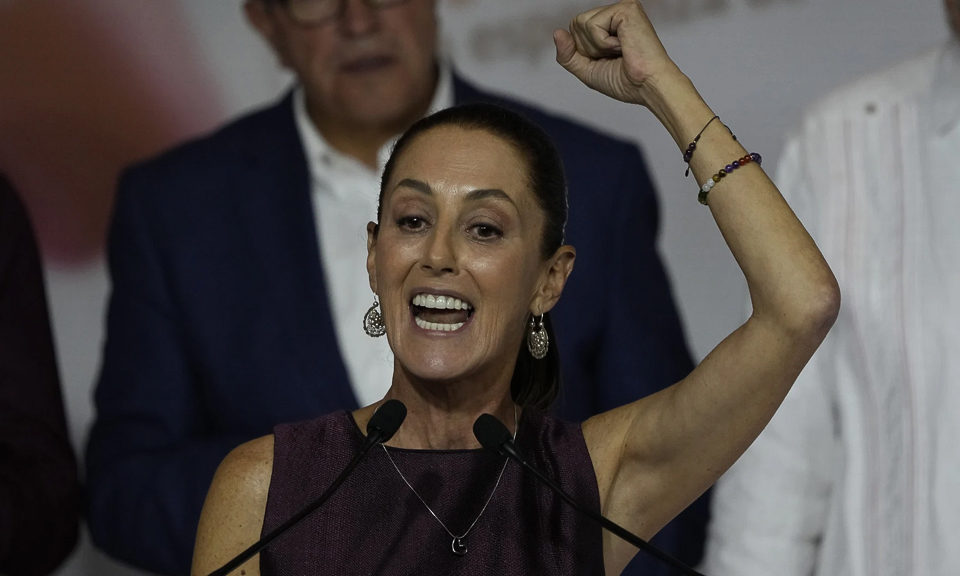Las elecciones más grandes y más violentas que haya tenido México
O n June 2nd, 2024, more than 98 million Mexican citizens were called to vote in the largest elections Mexico has held to date. More than 20,000 public positions were contested throughout the country, including the Presidency of the Republic, the 128 seats in the Senate and the 500 in the Chamber of Deputies of the Congress of the Union, the governments of eight states (Chiapas, Guanajuato, Jalisco, Morelos, Puebla, Tabasco, Veracruz and Yucatan), the Head of Government of Mexico City, as well as the municipal presidencies or city councils in 29 federal entities. Additionally, in the country’s capital, the new heads of the 16 mayoralties were elected.

The presidential candidate of the ruling party MORENA, Claudia Sheinbaum, addresses her supporters after winning the election, in Mexico City, Mexico, on June 3, 2024 © REUTERS/Raquel Cunha
Unfortunately, this electoral process also turned out to be the most violent that Mexico has had in its recent history. The Secretariat of Security and Citizen Protection (SSPC) acknowledged the murder of 22 candidates, but various independent organizations recorded higher figures: Data Cívica reported 31 murdered candidates, Causa en Común 32, Integralia 34, and DataInt 38.
Even more alarming are the figures if current or former officials, politicians, family members and collateral victims are also considered: Integralia reported a total of 231 homicides. The same source indicated that, between September 2023 and May 26th, 2024, they had recorded 749 victims of violent attacks related to the electoral process, which represented an increase of 150.5% compared to the 2021 midterm elections. The spectrum of attacks included not only murders, but also armed attacks, threats, kidnappings and disappearances.
Although President Andres Manuel Lopez Obrador (AMLO) minimized political violence in the electoral process at all times, he acknowledged that 560 candidates who requested it received protection from more than 3,400 security elements. On the same day of the elections, June 2nd, 260,788 members of the Army, the Mexican Air Force, the National Guard and the Secretary of the Navy participated in the National Public Security Strategy to safeguard the environment of peace during the election. Both protective measures are unprecedented in their magnitude.
A final indicator: facing several situations, mainly risk of violence, the National Electoral Institute (INE) reported that 222 polling stations were not installed in 11 states of the country. Chiapas led the list with 108 stations not installed, followed by Michoacan with 84 and Oaxaca with nine. These damages represented approximately 0.1% of the total number of planned polling stations.
MORENA and allies sweep the presidential and Congress elections
Despite the high levels of violence during the campaigns, election day took place relatively calmly, apart from a few isolated incidents. Participation was a little more than 60% of the electoral roll.
The results of the presidential election were not surprising compared to surveys conducted by media and consulting firms. Claudia Sheinbaum was elected as the first female president of Mexico, obtaining an advantage of 30 percentage points over the candidate Xochitl Galvez (from the PRI, PAN and PRD, historical parties in Mexico). Additionally, Sheinbaum’s party, the National Regeneration Movement (MORENA), along with her allies, achieved a legislative majority in both Chambers of the Congress of the Union. This will allow her to carry out the constitutional reforms of the so-called “Plan C”, inherited from President Andres Manuel Lopez Obrador, as well as consolidate the flagship megaprojects of the current administration.
According to the Quick Counts of the National Electoral Institute, Sheinbaum received between 58.3% and 60.7% of the votes, with citizen participation varying between 60% and 61.5% of the electorate. With an electoral roll of 98.3 million registered people, this means that Sheinbaum would have obtained between 35 and 36 million votes, representing a significant increase compared to the 30.1 million votes that Lopez Obrador obtained in 2018.
As for the Senate, the estimates from the statistical exercise carried out by the Technical Committee of the Quick Count (COTECORA) of the INE indicate that MORENA and its allies from the PVEM and the PT would have at least 76 of the 128 seats, which brings them closer to the qualified majority of two thirds, necessary to reform the Constitution. In the Chamber of Deputies, these same actors would take between 346 and 380 seats, which would far exceed the 334 votes required to reform the Constitution in the lower house.
Chiapas, one of the states that suffered the greatest electoral political violence
On June 2nd, in addition to the federal positions, the new governor, 40 deputies, 123 municipal presidents, 875 councilors and 123 trustees were elected in Chiapas. The high levels of political-electoral violence during the campaigns placed Chiapas among the most affected states, only surpassed by Guerrero.
At least 15 political murders were recorded, five of them of candidates. In addition, 515 candidates for various elected positions, belonging to 11 parties and two coalitions, resigned. According to the State Institute of Elections and Citizen Participation, the majority of the affected candidates were women.
Likewise, 108 of the 6,977 planned polling stations could not be installed. This affected the possible participation of about 61 thousand people, considering an electoral roll of four million, three thousand 327. The municipalities affected by this decision were: 12 in the municipality of Tila, 28 in Pantelhó, four in San Cristobal de Las Casas, three in Bella Vista, 45 in Chicomuselo, two in Ocozocoautla de Espinosa, one in Villaflores, four in Amatenango de la Frontera and seven in Honduras de la Sierra.
Eduardo Ramirez wins as governor in Chiapas with a wide margin
On June 2nd, without major surprise, Eduardo Ramirez Aguilar (ERA), candidate of the Let’s Keep Making History coalition, won the race for state governor with a wide advantage over his closest contender, Olga Luz Espinosa Morales, candidate of the Strength and Heart Alliance for Chiapas. She obtained about 80% of the votes cast. 62.7% of voters went to the polls. Just two hours after the polls closed, the MORENA member thanked the people of Chiapas for their support at the polls and for “the great hope they have placed in me as their next governor.”
The municipal link, the most disputed, giving rise to multiple post-electoral conflicts
Compared to the levels of violence during the campaigns, election day was relatively calm in the places where polling stations could be set up. However, this tranquility was interrupted in the case of Rincon Chamula, where at the end of election day, an armed attack on a polling station resulted in the death of Jose Manuel Jimenez Gomez from MORENA and Manuel Hernandez Moreno, a PT activist. In addition, five polling station officials were injured. The armed group also set fire to the ballots that were being counted at this location before fleeing.
The results at this level show some variety. The distribution of City Councils by party was as follows: MORENA obtained 39; the PVEM, 27; the PT, 15; Progressive Social Networks, 15; We Can Move Chiapas, five; PRI, four; Chiapas Unido, four; MC, two; and one independent. In addition, the We Will Continue Making History coalitions (MORENA and allies) obtained four, as did Strength and Heart for Chiapas (PAN, PRI and PRD). The PAN, the PRD, the Chiapas Popular Party, Solidarity Encounter and Force for Mexico did not obtain any mayoralty.
According to data obtained by the media, at least 12 incidents of post-election conflicts have been recorded after June 2nd. Groups dissatisfied with the results have set fire to municipal headquarters of the electoral body and have been involved in clashes.






